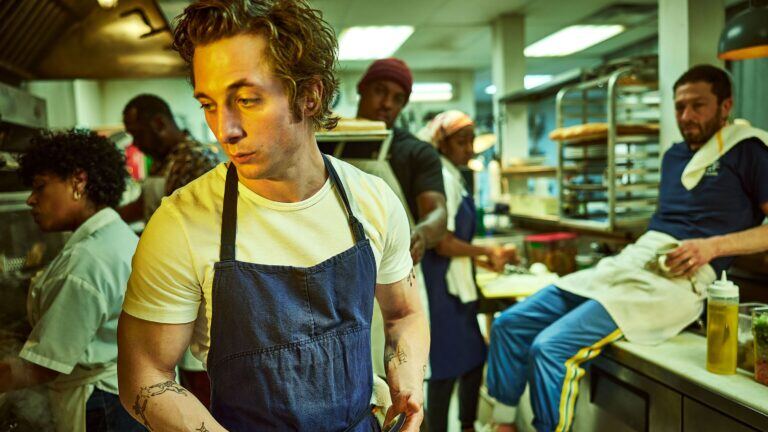first opinion
The kitchen chaos of 'The Bear' is giving hospital vibes

FX PRODUCTIONS
Everyone you know who has ever worked in a restaurant has told you how accurately it portrays the chaos of a restaurant kitchen. But psychiatrist Abraham Nussbaum says it reminds him of a different atmosphere: the hospital.
Mikey is like a tragic Gen X doctor who never finished residency. Uncle Jimmy represents the Boomer doctors who got in early, made a ton of money, but won't retire. Sydney (Boston's own Ayo Edebiri!) is the Gen Z doctor with all the skills, but none of the credentials. Carmy, the show's main character, embodies all the burnout and moral injury that so many doctors today are suffering from.
In a First Opinion essay, Nussbaum writes about what clinicians can learn from the show's representation of an extremely hierarchical profession that involves high effort and ephemeral labor. Read more.
cancer
Experts say there isn't enough evidence to screen never-smokers for lung cancer
Lung cancer is the most frequent killer of all the cancers, largely affecting people who smoke cigarettes. There's also a growing proportion of never-smokers getting the disease, leading experts to reconsider screening guidelines. But in a perspective published yesterday by the Journal of Thoracic Oncology, four doctors argue that there isn't enough evidence to support screening never-smokers, whether they have a family history or not.
A program in Taiwan revealed that screening never-smokers with a family history of lung cancer resulted in a detection rate more than twice the rate for high-risk decades-long smokers who were screened. But most of the cancers detected among never-smokers were in an early stage, and the harms of overdiagnosis or false positives cannot go ignored, the opinion authors write. They advocate for more research on the pros and cons of screening never-smokers, as randomized controlled trials have never been performed among this group.
cardiovascular health
Heart patients get better follow-up care overall, but disparities increase
More Medicare patients recovering from heart failure or a heart attack are getting prompt care after getting discharged from the hospital. It's good news, but there's a downside: Racial disparities in access to this timely care are actually widening.
The trends are identified in a study, published yesterday in the Annals of Internal Medicine, based on 10 years of Medicare claims data, STAT's Liz Cooney reports. Researchers analyzed whether patients visited a cardiologist or primary care clinician within a month of discharge.
"If we're improving overall rates, but the disparities are widening, are we really doing a good job of improving care for all?" one researcher who was not involved in the study said to Liz. Read more on why this follow-up care is so important, and what might be driving the disparities.


No comments